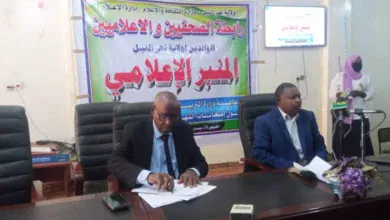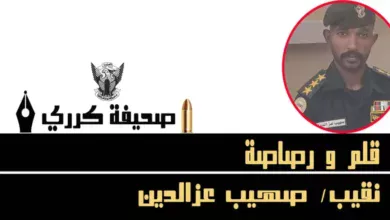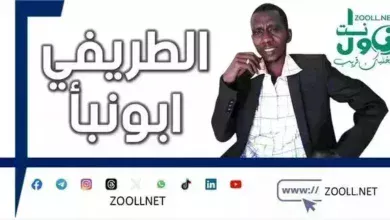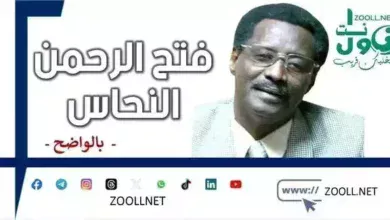Negotiation as an effective tool for resolving conflicts ✍️ Professor: Fikri Kabbashi, Al-Amin Al-Arabi
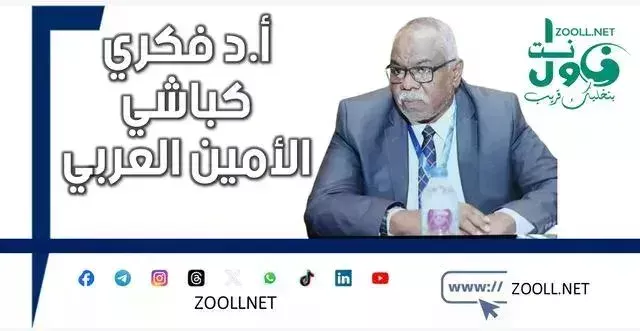
I believe that negotiation has become a science taught as a civilized method and an effective tool to resolve differences, resolve disputes, build partnerships, etc. Moreover, the art of negotiation depends more on planning and communication skills than on good faith and commitment. and it starts with planning by thinking about setting goals to know what one wants? What could he give or give up in exchange for it? .
Similarly, the art of negotiation requires the development of positive skills across cultures, and therefore the concept of culture is present among all parties to negotiations, and ignoring it arouses particular sensitivity in the other party and can be understood as sarcasm or sarcasm.
The art of negotiation also requires that negotiators are experts in the means and methods by which they deal with the issue and possess the skills required for effective negotiation. The head of the negotiating delegation must also be able to chart the course. in Sudan still lacks a good arrangement of priorities and consensus on constants that are not subject to negotiation and adopting positive excellence as a yardstick for comparison, and it should be noted that Britain apologized for not obtaining a translation of the complaint of the State of Sudan against the Emirates, so the consideration of the complaint was postponed and its fate is still pending, but I believe that there are three possibilities for the final decision after discussion and deliberation, which are as follows:
1. The complaint was dismissed due to the weakness of the evidence and proof. The mere fact of accepting the examination of the complaint and holding a hearing for it denies this possibility, especially since there are highly credible international organizations that have submitted reports in this regard.
2. Condemn the UAE for the moral damage it causes, as well as oblige it to bear in full the material and moral losses suffered by Sudan. This scenario and its implementation depend on the extent of the possibility for the United States to use its veto power to support the issuance of a decision in this regard.
3. Reach a settlement through negotiation whereby the complaint is withdrawn and the State of Sudan obtains full compensation or a percentage of the losses without a conviction.
All these scenarios are possible, but the one that will be realized depends on the degree of integrity, competence, patriotism, wisdom and merit of the Sudanese negotiator, as well as the importance of the care taken in selecting expert and qualified members of the delegation. because the art of negotiation depends more on planning and communication skills than on good faith and commitment. Planning begins with the stage of thinking about defining objectives, and I firmly believe that what the Sudanese people lack at this stage is the unification of the internal front on the values, principles and constants that represent the common denominator between all the components of society with their different intellectual starting points, ethnicities, beliefs and geographical regions. The most important principles of democracy require the recognition of the other, the acceptance of objective and constructive criticism, and a consensus that the method of free and direct dialogue represents the effective way to resolve all differences and prioritize the public interest of the Sudanese people, so far. to achieve personal interests and personal benefits. I repeat and reiterate what I have mentioned before on several occasions: the sudden development of events in Sudan after the outbreak of this cursed war and the anticipation of its future results represent a real test of wisdom. and the rationality of the political forces active in Sudan, both military and civilian, to know and test the extent of their ability to manage the political conflict, to cross the State of Sudan to the continent and to preserve its entity from fragmentation and fragmentation, as I said. I reiterate what I said, I always repeat that I always have the hope and determination that the governance crisis in Sudan will be resolved through local and national initiatives, efforts and efforts, without the need for external interventions and if the solution occurs through external interventions, this is an affirmation of the humble capabilities, skills and rationalities of all national leaders, elites and wise men, and the historical records and will have no mercy.
Prof. Dr. Fikri Kabbashi, Al-Amin Al-Arabi.
August 8, 2024 AD.



